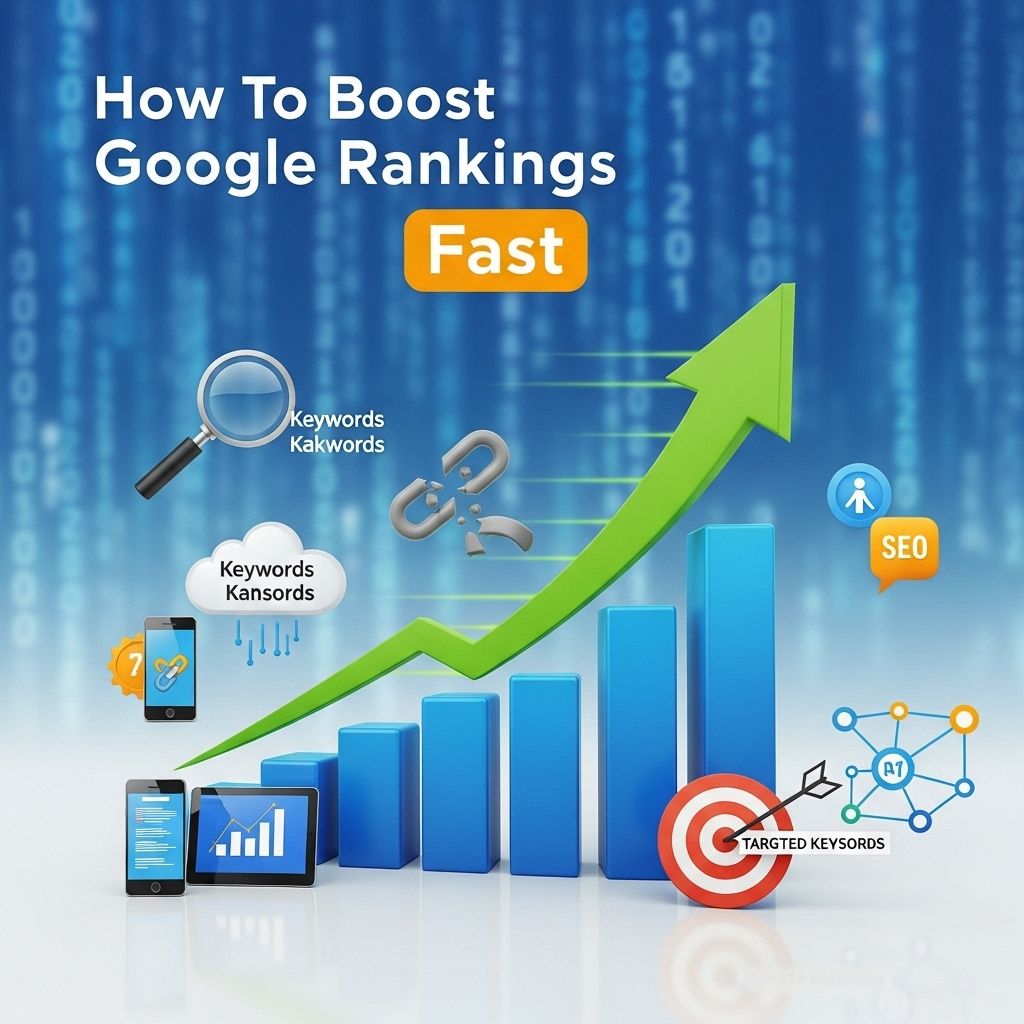In the world of digital marketing, achieving high Google rankings is a coveted goal for businesses and website owners alike. With millions of websites vying for attention on search engines, understanding the mechanics of search engine optimization (SEO) is vital for driving traffic and increasing visibility. This article explores effective strategies to boost your Google rankings rapidly, leveraging both best practices and innovative techniques.
Table of Contents
Understanding Google Rankings
Google rankings are determined by a complex algorithm that evaluates various factors to decide how to rank web pages in search results. The primary goal of this algorithm is to deliver the most relevant and useful content to users for their search queries. Here are the key components that influence rankings:
- Relevance: How well does your content match the user’s search intent?
- Quality: Is your content informative and trustworthy?
- Authority: How reputable is your website within its niche?
- User Experience: Does your site provide a seamless navigation and interaction experience?
On-Page SEO Strategies
On-page SEO refers to the optimization of individual web pages to rank higher and earn more relevant traffic. Here are essential strategies to implement:
Keyword Optimization
Keywords are the foundation of SEO. Selecting the right keywords can significantly affect your ranking. Consider the following steps:
- Research: Use tools like Google Keyword Planner or Ahrefs to find relevant keywords.
- Placement: Include primary keywords in strategic locations such as titles, headers, and throughout the content.
- Long-Tail Keywords: Target long-tail keywords that are less competitive but more focused on specific queries.
Quality Content Creation
Google prioritizes high-quality content that provides value to readers. Focus on:
- Creating original, well-researched content.
- Utilizing various formats like blog posts, videos, infographics, and podcasts.
- Incorporating images and media to enhance user engagement.
Meta Tags and Descriptions
Optimize your meta titles and descriptions effectively:
| Element | Best Practices |
|---|---|
| Title Tag | Keep it under 60 characters, include primary keywords. |
| Meta Description | Summarize content in 150-160 characters, enticing users to click. |
Technical SEO Considerations
Technical SEO involves optimizing your website and server to help search engine spiders crawl and index your site more effectively. Key aspects include:
Site Speed
A fast-loading website is crucial. Use tools like Google PageSpeed Insights to analyze and improve loading times. Consider:
- Compressing images
- Leveraging browser caching
- Reducing server response time
Mobile-Friendly Design
With the increasing use of mobile devices, ensure your site is mobile-responsive. A mobile-friendly site boosts user experience and lowers bounce rates.
XML Sitemap
Create and submit an XML sitemap to help search engines understand your site structure and index your pages more effectively.
Off-Page SEO Techniques
Off-page SEO refers to actions taken outside of your own website that impact your rankings. Here are essential techniques:
Backlink Building
High-quality backlinks from reputable sites signal to Google that your content is authoritative. To build backlinks:
- Engage in guest blogging on relevant sites.
- Promote your content through social media.
- Collaborate with influencers in your niche.
Social Media Engagement
While social signals don’t directly impact SEO, a strong social media presence can drive traffic and engagement. Strategies include:
- Regularly posting engaging content.
- Interacting with your audience to build a community.
- Using paid advertising to reach a broader audience.
Monitoring and Adapting Strategies
Continuous monitoring of your SEO efforts is essential for sustained success. Use analytics tools to track performance and make necessary adjustments. Key metrics to monitor include:
- Organic traffic levels
- Keyword rankings
- Bounce rates
- Conversion rates
Utilizing Google Analytics
Google Analytics is a powerful tool for tracking website performance. Key features to focus on include:
- Real-time visitor tracking
- Traffic source analysis
- User behavior flow
Conclusion
Boosting your Google rankings fast requires a comprehensive approach that combines on-page, technical, and off-page SEO strategies. By focusing on quality content, efficient technical practices, and active engagement with your audience, you can enhance your visibility on search engines. Remember, SEO is a continuous process, and staying updated on the latest trends and algorithm changes is crucial. Implement the strategies outlined in this article, and watch your rankings soar.
FAQ
What are the most effective strategies to boost Google rankings quickly?
To boost Google rankings quickly, focus on optimizing your website’s on-page SEO, creating high-quality content, building backlinks, improving site speed, and ensuring mobile-friendliness.
How important is keyword research for improving Google rankings?
Keyword research is crucial for improving Google rankings as it helps you understand what terms your target audience is searching for, allowing you to optimize your content accordingly.
Can social media presence impact my Google rankings?
Yes, a strong social media presence can indirectly impact Google rankings by driving traffic to your site, increasing brand awareness, and generating backlinks.
What role does content quality play in boosting Google rankings?
Content quality is vital for boosting Google rankings; high-quality, relevant, and engaging content attracts more visitors and encourages backlinks, which are key ranking factors.
Is it possible to see improvements in Google rankings overnight?
While some minor changes can yield quick results, significant improvements in Google rankings typically take time and consistent effort in SEO strategies.
How can I use backlinks to improve my Google rankings?
Building high-quality backlinks from reputable websites can significantly enhance your Google rankings by increasing your site’s authority and trustworthiness in the eyes of search engines.









